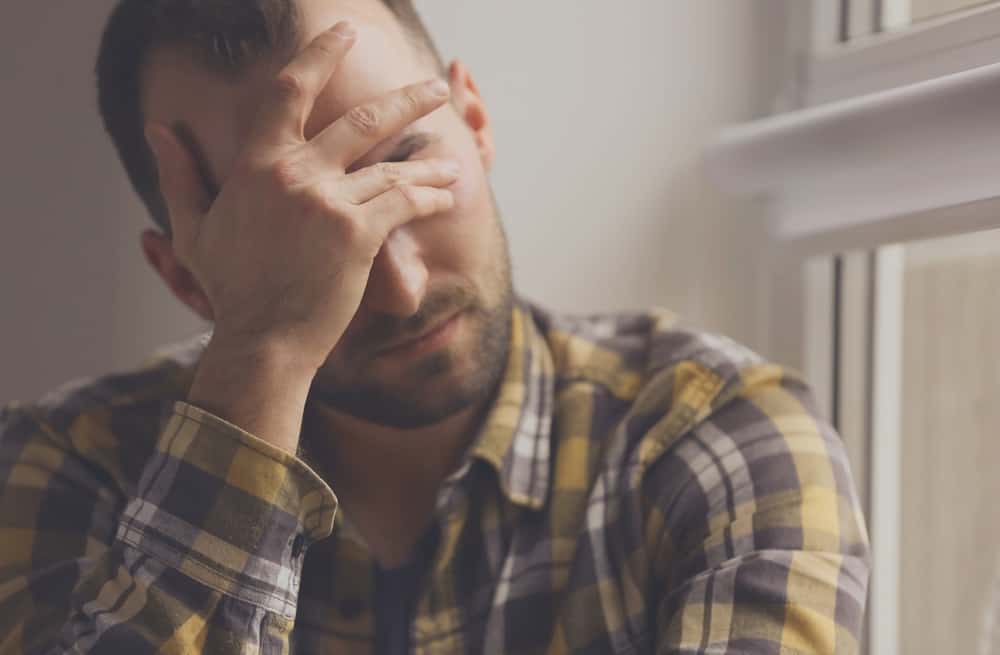As humans, we all experience days or periods of time in life where we feel sad (for example, following the loss of a loved one) or flat (e.g. after being rejected as a candidate for a new job). Unlike normal situations where these feelings eventually subside, depression is a serious mental health condition whereby these feelings of sadness and low mood intensify and hang about for long periods of time (anywhere from a fortnight up to several years).
There are a number of reasons as to why people suffering from depression avoid seeking help for some time. Some people are embarrassed to voice how they are feeling, in case they are deemed “weak” (where in fact, seeking help means you are facing what you are going through – a sign of strength). Others may be concerned about how much time and/or money they need to invest in seeking professional help (e.g. psychologist fees). Despite the many reasons sufferers of depression may put off seeking help, the sooner you are able to find someone that can help you, the sooner you can rediscover happiness and enjoy life again.
Below we discuss some of the key signs it is time for you or someone you care about to seek help for depression.
Have you been struggling with depression symptoms for two weeks or longer?
If you answered yes to this question, it is a good idea to do some research and seek professional help while it is still early days. Like many other mental (and physical) illnesses, the sooner you are able to get some support and advice, the sooner you are able to manage the symptoms and recover from depression.
Is your depression affecting your physical health?
Depression has the potential to greatly affect our physical health. Depression may negatively impact the physical health of a person in the following ways:
- sleep difficulties (for example, struggling to fall asleep at night and/or insomnia) or excess sleep
- exhaustion and fatigue
- headaches and muscle aches/pains
- gastrointestinal problems
- appetite and weight changes (both increases or decreases are common)
- often feeling rundown and/or sick
It is bad enough that our mental health is under fire when suffering from depression, but when our physical health is also negatively impacted, it is a strong signal that professional help is required.
Do you feel like you can’t get out of bed in the morning?
Getting out of bed in the morning can feel like the hardest task in the world for someone suffering from depression, and a person may feel this way for a variety of reasons:
Feeling exhausted and fatigued from the moment you wake up: Difficulty sleeping is a very common problem when one feels depressed, and can leave an individual feeling exhausted and fatigued before they’ve even got up out of bed to start the day ahead.
No longer enjoying activities that used to bring great joy: It can be extremely difficult to motivate oneself to rise from bed when you feel there is nothing to look forward to in your day; the things that used to excite you and made you feel happy may no longer do so. This is a strong sign you need to seek help from depression, so you can get back to enjoying activities that previously brought you great joy.
Feeling unable to perform at home, school work or socially: If your mental health is suffering so much that you are unable to meet deadlines or the regular demands of school or work, you may find yourself pulling the covers over your head and not wanting to face the day. If this sounds like how you are currently feeling, it is time to seek professional help. Similarly, if you are unable to perform basic tasks at home such as cooking a meal or doing the washing, reach out for help – you don’t have to feel this way.
Are your relationships with others being negatively impacted by your depression?
For example – are you often feeling agitated and/or short-tempered, and snapping at loved ones without the intention to do so? Or, do you find yourself withdrawing from friends and family? Don’t let your chronic feelings of unhappiness or poor mood affect your relationships with others – seek professional help, so you can be the best person possible for those need you the most. Get back to wanting to spend time making happy memories with the people that you love most in the world.
Are you attempting to drown out your feelings with alcohol (or drugs)?
Don’t delay in seeking professional help. Alcohol, alongside many drugs, is a depressant, and when consumed in large doses, particularly on a regular basis, can in fact significantly worsen your feelings of depression.
Have you considered or attempted self-harm or suicide?
If the answer is yes, seek immediate treatment. If you are having thoughts of wanting to harm or kill yourself as you can’t bear the pain you are in any longer, reach out for help immediately.
Where To Receive Professional Help For Depression
- In case of emergency, call Triple Zero (000)
- If you require urgent support, call the 24/7 Beyond Blue Support Service on 1300 22 4636 or Lifeline’s 24-hr Telephone Crisis Support on 13 11 14
- Visit your local doctor, who can refer you to a psychologist, psychiatrist or other qualified professional who can best give you the help you need
- Visit your local mental health clinic
- See or speak to a professional therapist at Blissiree Pty Ltd to help you recover from depression and get back to feeling yourself and enjoying your life the way you deserve to







